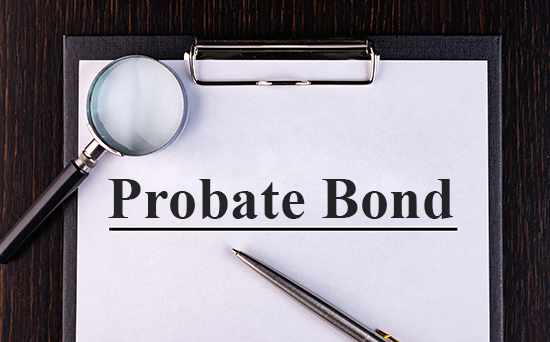Can you probate a will without a lawyer in Texas? The short answer is yes, but the long answer requires understanding the legal intricacies of the probate process. Probate in Texas is relatively streamlined compared to many other states, but it still involves numerous legal procedures that can be challenging for someone without legal experience. However, if you are handling a simple estate with minimal debts and no disputes among heirs, you may be able to navigate the process without hiring an attorney.
What Is Probate in Texas?
Probate is the legal process by which a deceased person’s assets are distributed to their heirs and creditors. In Texas, probate proceedings ensure that a will is valid, debts are paid, and remaining assets are distributed according to the deceased’s wishes. This process is overseen by a probate court and involves various legal documents, court hearings, and deadlines. The primary purpose of probate is to settle the financial affairs of the deceased in an orderly manner, ensuring that all outstanding debts are satisfied before beneficiaries receive their inheritances.
Texas is known for its relatively simple probate process compared to other states, which is why some individuals attempt to handle it without a lawyer. However, it is crucial to understand the nuances of probate law to avoid unnecessary delays, financial liabilities, or legal complications.
When Can You Probate a Will Without a Lawyer in Texas?
Texas offers several probate options, some of which are simplified enough that an individual may proceed without legal representation. If you meet the following conditions, you might be able to handle probate on your own:
- The estate qualifies for a simplified probate process – Texas allows for independent administration, which means minimal court supervision. If the will explicitly states that independent administration is allowed, the process is much easier to navigate.
- There are no disputes among heirs – If family members or other interested parties contest the will, the probate process becomes more complex, making legal representation advisable. Disputes can arise over asset distribution, the validity of the will, or the appointment of an executor.
- The estate has limited assets and debts – If the estate has minimal debts and does not involve complicated assets (such as businesses or properties in multiple states), handling probate without a lawyer is more feasible. Complex estates often require professional guidance to ensure proper distribution and compliance with state laws.
- The executor is comfortable handling legal paperwork – If the executor is willing to research Texas probate laws, fill out court-required documents, and meet deadlines, hiring an attorney may not be necessary. However, mistakes in filing paperwork or missing deadlines can lead to delays or additional court involvement.
Understanding Independent vs. Dependent Administration
One of the primary factors determining whether you can probate a will without a lawyer in Texas is whether the estate qualifies for independent administration or must undergo dependent administration.

Independent Administration
- This is the preferred method in Texas because it requires minimal court supervision.
- If the will explicitly authorizes independent administration, the executor can manage the estate with little court involvement.
- The executor can pay debts, distribute assets, and settle the estate without needing court approval for every action.
- Independent administration significantly reduces the burden on the probate court and speeds up the overall process.
- The executor must still comply with all legal obligations, such as notifying creditors, filing necessary tax returns, and keeping accurate records.
Dependent Administration
- Requires the executor to obtain court approval for every transaction, making the process more cumbersome.
- This is typically required if the will does not specify independent administration or if the heirs disagree on asset distribution.
- Due to the complexity of dependent administration, hiring a lawyer is usually necessary.
- The executor must seek court approval before paying debts, selling assets, or distributing inheritances.
- Dependent administration offers additional court oversight, reducing the risk of executor misconduct but increasing legal complexity.

Steps to Probate a Will Without a Lawyer in Texas
If you decide to proceed with probate without an attorney, you need to follow a specific legal process. Below are the general steps:
1. File the Will and Probate Application
- Within four years of the deceased’s death, the will must be filed with the probate court in the county where the deceased lived.
- The application for probate must be submitted along with the will.
- A hearing date will be set to validate the will.
- The executor must provide required documentation and ensure all paperwork is correctly filed to prevent delays.
2. Attend the Probate Hearing
- The court will review the will to determine its validity.
- The executor named in the will is officially appointed by the court.
- If there are no objections, the court will issue Letters Testamentary, granting the executor the legal authority to act on behalf of the estate.
- If the will is contested, legal disputes may arise, potentially requiring legal representation.

3. Notify Creditors and Beneficiaries
- The executor must notify creditors of the estate’s debts.
- Beneficiaries named in the will must also be informed.
- A notice must be published in a local newspaper to alert any unknown creditors.
- This step ensures that all financial obligations of the deceased are properly addressed.
4. Inventory the Estate
- The executor is responsible for compiling a list of the estate’s assets and liabilities.
- This inventory must be filed with the probate court within 90 days of appointment.
- A thorough and accurate inventory prevents legal disputes and ensures a smooth probate process.
5. Pay Debts and Taxes
- The estate’s debts must be settled before assets are distributed.
- Texas does not have a state inheritance tax, but federal estate taxes may apply.
- Failure to properly address debts and taxes can lead to legal and financial consequences for the executor.
6. Distribute Assets to Beneficiaries
- Once debts and taxes are paid, the remaining assets can be distributed to beneficiaries according to the will.
- A final accounting report may need to be filed with the court.
- Proper documentation of asset distribution ensures transparency and legal compliance.
7. Close the Estate
- Once all assets have been distributed and debts settled, the executor can file a motion to close the estate.
- If approved, the court will issue an order officially closing the probate case.
- A properly closed estate prevents future legal disputes among heirs.
Potential Pitfalls of Probating Without a Lawyer
While probating a will without a lawyer in Texas is possible, there are several risks involved:
- Legal paperwork mistakes – Errors in filing documents can delay the probate process and result in additional court fees. Incorrectly filed documents can cause legal complications, requiring additional hearings or amendments to rectify mistakes. This can prolong the process and increase costs.
- Disputes among heirs – Family disagreements can lead to costly legal battles, which may ultimately require a lawyer. If disputes arise over asset distribution, it can lead to prolonged litigation, which may deplete the estate’s assets and strain family relationships.
- Unknown debts – Overlooking creditors can result in personal liability for the executor. If creditors are not properly notified or debts are not accounted for, the executor may be held responsible for unpaid liabilities, leading to financial and legal consequences.
- Missed deadlines – Failing to meet court-imposed deadlines can cause complications and additional court intervention. Texas probate courts have strict timelines for filing paperwork, notifying creditors, and distributing assets. Failure to comply with these deadlines can result in penalties or dismissal of the case.
Alternatives to Formal Probate
If you want to avoid a lengthy probate process, Texas provides alternative methods:
Small Estate Affidavit
- Available for estates valued under $75,000 (excluding the homestead and exempt property).
- Allows heirs to claim assets without formal probate.
- A streamlined process that avoids court intervention in many cases.
- The affidavit must be filed with the court and signed by all heirs under oath, confirming their entitlement to the estate’s assets.
- This method is ideal for small estates with limited assets and no significant disputes.
Muniment of Title
- If there are no debts (other than a mortgage), this streamlined probate method can be used to transfer property ownership without full probate proceedings.
- Particularly useful when dealing with real estate transfers.
- The court issues an order recognizing the will as valid and allowing the direct transfer of property to heirs.
- This process eliminates the need for an executor to administer the estate, simplifying the transfer of ownership.
- Ideal for cases where the primary asset is real estate, and there are no outstanding creditor claims.
Key Takeaways for Probating a Will Without a Lawyer in Texas
Probating a will without a lawyer in Texas is possible under the right circumstances. If the estate is simple, the will is uncontested, and you are comfortable with legal paperwork, you may successfully complete probate without an attorney. However, it is essential to recognize the challenges involved. Probate requires attention to detail, an understanding of legal deadlines, and a commitment to ensuring that all steps are completed accurately.
Before deciding whether to proceed without legal assistance, carefully assess the complexity of the estate, your ability to handle the legal process effectively, and the potential risks involved. If at any point the probate process becomes overwhelming, consulting with a probate attorney can provide clarity and peace of mind, ultimately ensuring that the deceased’s wishes are honored in the most efficient and legally compliant manner possible.








